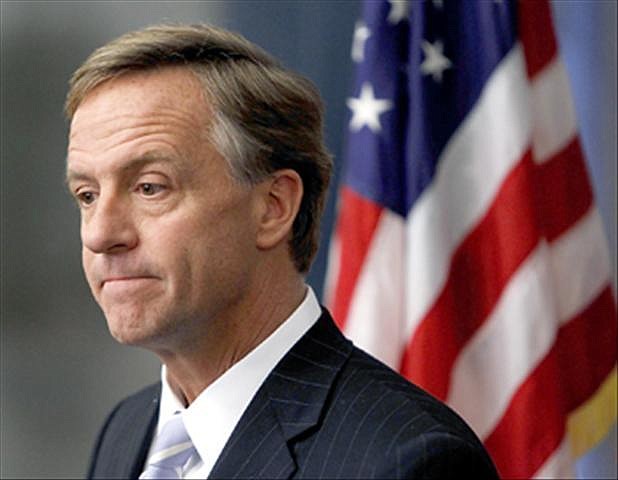Tuition cost shift worries Governor Bill Haslam
Friday, January 1, 1904
NASHVILLE -- Gov. Bill Haslam says he's concerned that students rather than the state increasingly are shouldering the cost of attending public universities and colleges.
"I understand the role the state has played over the past 30 years," the governor told higher education officials during budget hearings last week. "I also know we can't continue the current trend in terms of affordability by middle-class families."
Haslam is weighing state budget cuts of up to 5 percent across most of state government in the coming year.
Faced with loss of state funds, higher education officials have recommended raising tuition fees by 3 percent to 8 percent next year at colleges and universities, and from 5 to 10 percent at the Tennessee 27 technology centers.
For years, the state has trimmed appropriations for higher education while tuition and fees have gone up.
According to the Tennessee Higher Education Commission, tuition and fees have gone up between 104.8 percent and 142 percent in the last 10 years, depending on the institution, with technology centers at the high end of the spectrum.
THEC Executive Director Rich Rhoda said that in 1999, state appropriations accounted for about 70 percent of a community college's cost for full-time equivalent students. Today it's more like 40 percent.
The share of state appropriations for universities like the University of Tennessee at Chattanooga has fallen from nearly 58 percent of the university budget to about a third.
Rhoda told Haslam that, depending on new budget cuts, the overall state share of funding for full-time equivalent students could drop to 36 percent.
That doesn't count the state's lottery-funded scholarship and other state, institutional and federal grants or scholarships.
University of Tennessee system President Joe DiPietro told Haslam it's a national trend.
"We're not unique in Tennessee in it being transferred to students and their families," DiPietro said.
But he and state Board of Regents Chancellor John Morgan said institutions have become more efficient at delivering services and that public higher education remains a relatively good deal in Tennessee compared to many states.
STIMULUS SPENT
Billions of dollars of federal stimulus funds helped offset state budget cuts after the Great Recession of 2008. Now that money is gone, and Tennessee's economy is only slowly reviving.
In next year's budget, a 5 percent cut would mean a $55 million reduction in state support. Higher education officials are asking for at least a $28.7 million increase.
Some $19.3 million of that would go to institutions that raised graduation rates, based on a 2010 state move to reward institutions doing a better job.
The low end of recommended tuition increases for next year -- 3 percent for UTC and Chattanooga State -- would come if there are no cuts. That would be the lowest tuition increases in more than 11 years.
If the budget is cut by the full 5 percent budget, tuition would rise 6 percent.
Haslam said last week that if revenues keep improving, state funding reductions would be less than 5 percent.
STRAIN SHOWS
In the last decade, tuition and fees for a full-time UTC student rose from $3,236 to $6,718, a 107.6 percent increase, according to THEC figures.
For Chattanooga State, a two-year college, tuition and fees rose from $1,637 to $3,567, a 117.9 percent hike.
That's proving tough for students like Jennifer Redmond, a sophomore seeking a paralegal degree from Chattanooga State.
A federal Pell grant doesn't cover all the school costs for Redmond, 34, who is changing careers. Another partial scholarship that kicks in next month will help, but Redmond said she's also taken out two loans to help her through.
A tuition increase "makes it extremely difficult because I can't work full time because of my classes," said Redmond, who was in Nashville over the weekend for the Tennessee Intercollegiate Student Legislature, an educational program for students interested learning about state government.
"That's why I took out two loans, because I have to put food on my table and still do all the things I have to do."
She plans on graduating this spring, before tuition goes up again.
Middle Tennessee State University junior Christopher Merchant isn't so lucky. While he has a Tennessee Lottery-funded HOPE scholarship, which provides up to $4,000, that doesn't cover everything, he said.
"It happens every year," Merchant said of tuition increases, calling them "definitely a punch" to students.
